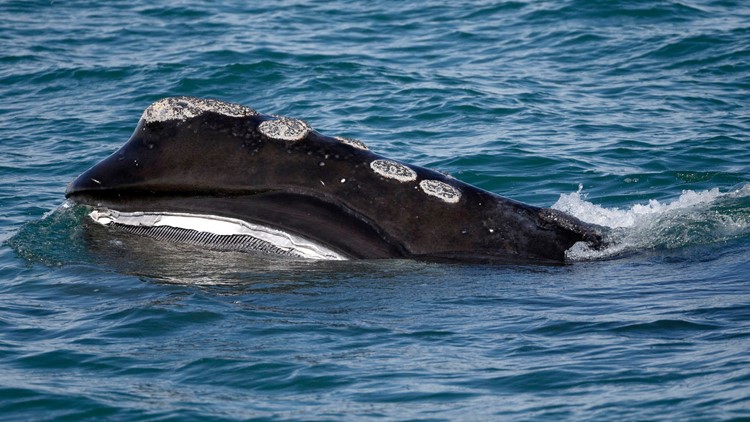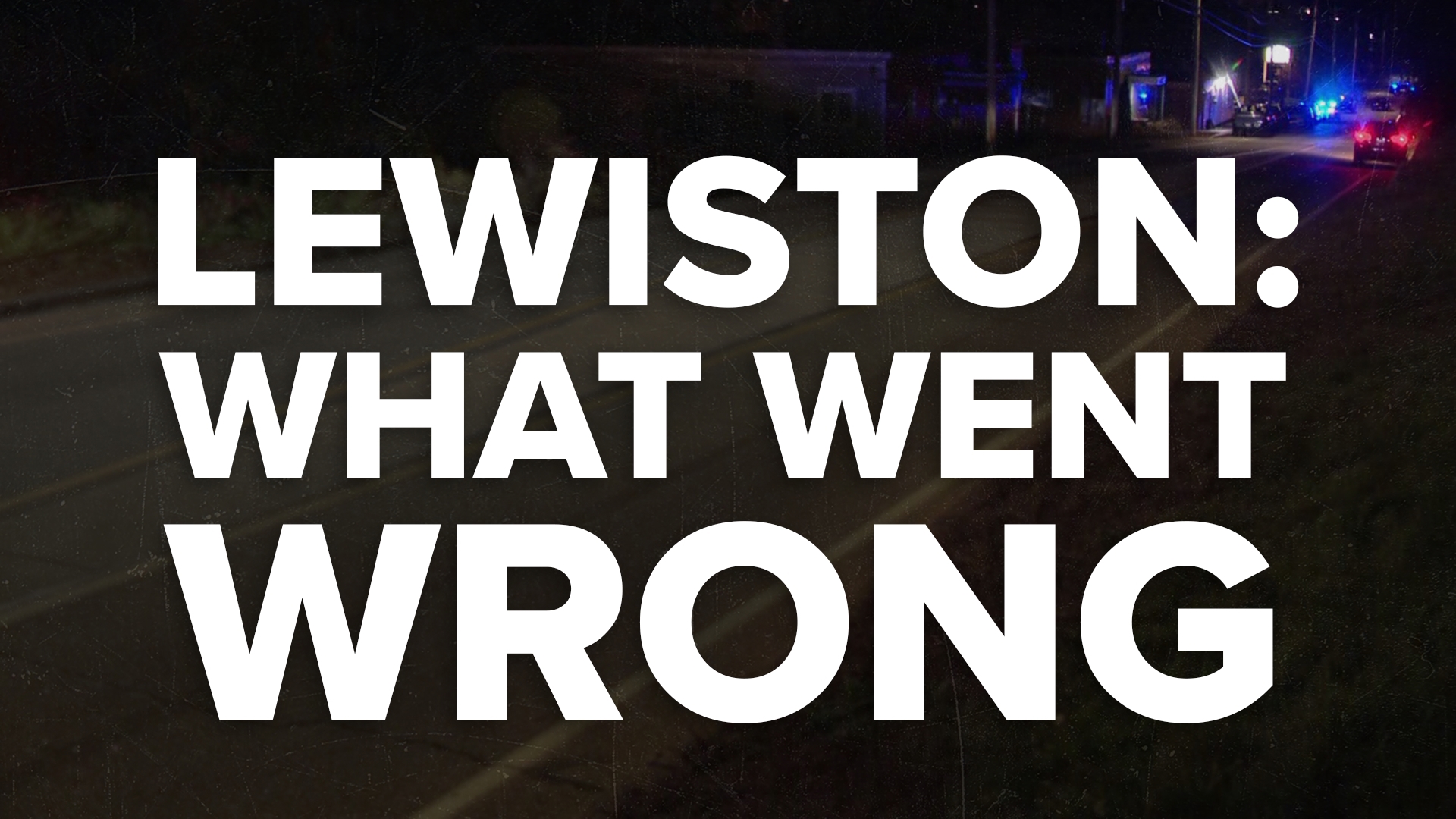PORTLAND, Maine — A directive for new protections for endangered right whales represents an "absurd federal overreach" that places an unfair burden on Maine's signature lobster fishery, Gov. Janet Mills said.
She ordered the state Department of Marine Resources to draft an alternative plan that would reduce the impact on lobstermen.
"My administration will not allow any bureaucrat to undermine our lobster industry or our economy with foolish, unsupported and ill-advised regulations," she wrote in a letter this week to the lobster industry.
The National Oceanic and Atmospheric Administration wants the state to present a plan in September for reducing the lobster industry's threat to right whales by 60%.
The plan would mean reducing by half the number of lobster trap lines that could entangle whales. It would also require weaker rope for traps in federal waters.
RELATED: 'Hail Mary' tweet, letter to POTUS: Golden fights for Maine lobster industry against regulations
RELATED: Lobster industry anxiously awaits new right whale protection guidelines
But the Democratic governor says that Maine's lobster industry isn't the "primary problem" and that there's a "disturbing lack of evidence" connecting it to recent right whale deaths. Six have died in recent weeks in Canadian waters.
She said she would "defend Maine's lobster industry in the face of absurd federal overreach."
Maine's congressional delegation, which supports Mills, says a "science-informed and equitable solution" is needed to protect the whales, which number around 400.
Maine officials say the burden on lobstermen is unfair because most right whales swim farther offshore, away from the thousands of lobster traps in Maine waters. So it doesn't make sense to impose drastic restrictions that could imperil the state's lucrative lobster fishery, they say.
Maine scientists will reexamine the issue and submit a plan in September, but it won't necessarily look anything like the original proposal by a NOAA team, said Jeff Nichols, spokesman for the Maine Department of Marine Resources.
"We're acting on that on the governor's direction to reevaluate the data and come back in September with a plan that includes a risk-reduction target that is more commensurate with what's happening in Maine waters," he said Friday.
NOAA issued a statement saying it was "disappointed" that Maine may "unilaterally" withdraw from a process that included Maine participants on the panel that made the original recommendations to the agency.
The submission of a plan is another step in the process of creating new rules to protect right whales. The target is to have the rules in place in 2021.
The proposed restrictions on trap lines come at a challenging time for lobstermen. A warming ocean has triggered concerns about the long-term health of the fishery, and a shortage in herring used for bait is creating a worry for lobstermen this summer.
Most of the U.S. lobster catch comes to the shore in Maine, where lobstermen landed nearly 120 million pounds (54 million kilograms) last year.



